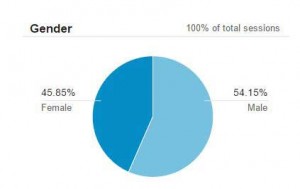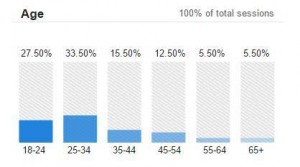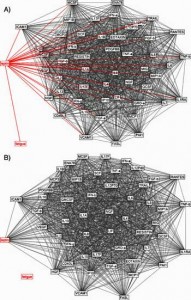



News
Most Welcome New Book – Melinda Malott produces a book that explains FM and ME/CFS to kids – How Many Marbles Do YOU Have? A Children’s Chronic Fatigue Syndrome and Fibromyalgia Book
Longest Wait – In a contest between three highly anticipated events:
- the Rituximab Trial (started in late 2014 to wrap up in 2017)
- the Canary in a Coal Mine film (begun in 2013, due to wrap in 2017/18)
- SolveCFS’s drug repurposing results (identified in June, 2013… revealed in ???)
the Canary takes the prize. The good news is that it will surely be worth the wait (it’s being expanded) because the team has made the
The Best Video – Hands down – Jenn Brea’s Canary in a Coal Mine video – still as vivid and engrossing as the day it was released.
Biggest Media Splash – Zeineh’s brain MRI findings prompt the media to report that Chronic Fatigue Syndrome is Real – Stanford Brain Study Sparks Media Reports – “Chronic Fatigue Syndrome is Real”
Best Conference – The Stanford Symposium provides a higher percentage of hot presentations than any other conference in memory. Most gratifying is the fact that most come from Stanford researchers, demonstrating that Dr. Montoya has been very effective in getting other faculty involved. Tweeting the Stanford Symposium for Chronic Fatigue Syndrome
- Gene expression results indicate ME/CFS is a close match to “systemic inflammatory syndrome.”
- Brain MRI findings highlight basal ganglia dysfunction and may provide a biomarker.
- The Zinns find ME/CFS patients’ brains are asleep when they should be awake and suggest a “limbic encephalopathy” may be present.
- Younger’s “Good-day, Bad-Day” study suggests problems with leptin may cause microglial activation and trigger an immune cascade.
- Cytokines suggest ME/CFS patients have a unique inflammatory and autoimmune profile.
Research
Most Jaw-Dropping Study – it will take a year to run all 600 samples through Davis’s mighty Immune profiling machine at Stanford’s Human Immune Monitoring Center. By the time it’s done, you can expect biomarkers, subsets, and a lot more to come out of the biggest study ever done on ME/CFS: Comprehensive, Rigorous and Deep: Is Stanford Going to Solve Chronic Fatigue Syndrome?
Biggest Fall to Earth – Norwegian researcher and doctor Brun Wyller thought he had it all figured out – even going so far as to coin his own definition – but two disappointing studies put the kibosh on his sustained arousal hypothesis, including one in which his medication of choice – Clonidine – actually made patients worse. Unfulfilled Expectations – Wyller’s Sustained Arousal Hypothesis Takes Another Hit
Nicest Replication– small fiber neuropathy finding are duplicated in every fibromyalgia study done – indicating that somewhere around 40% of FM patients have damage to the nerves in their skin (and perhaps other places). The ‘Body’ is Back in Fibromyalgia: Small Nerve Fiber Damage Found
Biggest Potential Paradigm Changing Result – Dr. Pridgen’s long-awaited Phase II trial results that indicate that Famvir plus Celebrex produces solid results in relieving FM patients’ pain implicates herpesviruses in a “central pain disorder” –Drug Combo in Pridgen Antiviral Fibromyalgia Trial Identified – Some Results Available
Best Image – Jarred Younger’s small “Good-Day Bad-Day” study suggests that all roads in ME/CFS lead to leptin….
Second-Biggest Potential Paradigm Changing Result – A study suggests that POTS, in many cases, may be caused by an autoimmune disorder – Problems Standing? Studies Suggest Autoimmunity Causes Orthostatic Intolerance: Implications For Chronic Fatigue Syndrome
Most Rewarding Finding – Andrew Miller ties in the fatigue in ME/CFS with other neurological disorders as he implicates inflammation, the basal ganglia, dopamine, the microglia, and reduced “reward” pathways in the brain in ME/CFS patients – Unrewarding Reward: The Basal Ganglia, Inflammation and Fatigue In Chronic Fatigue Syndrome

Demonstrating that it’s tough to keep a good virus down, EBV takes a hit and then pops back up again
Biggest Comeback – Epstein-Barr Virus – not long after Ian Lipkin finds no evidence at all of EBV in ME/CFS, German researchers looking in a different compartment of the blood find that EBV is present – in spades – and uncover some intriguing immune holes as well. EBV Back Front and Center: German Group Finds Immune Holes and Increased Levels of Epstein-Barr Virus in Chronic Fatigue Syndrome
Biggest Pathogen Controversy – Ian Lipkin’s inability to find any evidence of our favorite ME/CFS virus in his large study leaves some to question if he’s looking in the wrong place. Lipkin is now looking for pathogens in white blood cells.
Most Intriguing ME/CFS and FM Hypothesis – the same Japanese researchers who uncovered the neuroinflammation in ME/CFS posit that a “fatigue inhibition system” stops signals traveling from the brain that tell the muscles to become activated, thereby causing fatigue – Fatigue Explained? Japanese Assert Brain Damage Causes Fatigue in Chronic Fatigue Syndrome
Best Reminder That Chronic Fatigue Syndrome is Different… Very Different – The Lights’ exercise study showing that multiple sclerosis patients are VERY fatigued but tolerate exercise pretty well, while ME/CFS patients are a bit less fatigued but fall apart when they exercise – demonstrates there’s more to fatigue than “fatigue”. A “Fatigue” Disorder No More? – What Multiple Sclerosis Taught Us About Fatigue and Chronic Fatigue Syndrome
Greatest Precision –Zeineh’s finding problems in one very small part of the brain in almost all the ME/CFS patients in his study and none of the healthy controls sparks media reports that ME/CFS is real, and suggests this Stanford researcher may have found a brain biomarker – Stanford Brain Study Sparks Media Reports – “Chronic Fatigue Syndrome is Real”
Most Inflammatory Result – Japanese researchers find evidence that neuroinflammation in the brain is present and possibly widespread in ME/CFS – Neuroinflammation: Putting the ‘itis’ back into Myalgic Encephalomyelitis – Back to the Future For Chronic Fatigue Syndrome?
Second Most Inflammatory Result – Gene expression study at Stanford (unpublished) indicates that the gene activity in chronic fatigue syndrome suggests it’s most like “systemic inflammatory syndrome” and other inflammatory disorders.
Highest Pressure Result – Study suggests that increased intracranial spinal fluid pressure may be contributing to ME/CFS – Pressure Building? Study Suggests Cerebral Spinal Fluid Pressure May Be Causing Problems in Chronic Fatigue Syndrome
Most Intriguing Biomarker – Japanese researchers think they may have found the ever-elusive biomarker for fatigue; not surprisingly it involves the autonomic nervous system – Biomarker for Fatigue Could Help Validate Chronic Fatigue Syndrome
Biggest Wake-up Call – AHRQ report eliminates so many studies from consideration that all it can really say about diagnosis and treatment is that it really can’t say anything – How to Kiss 200 Million Dollars Good-Bye – Report Decries State of ME/CFS Research
Best Reminder that It’s Not All About Fatigue and Pain – Study finds a unique brain abnormality that is associated not with pain but with sensory distress in FM – Sensory Distress: The Other Side of Fibromyalgia
Treatment and Diagnosis
Biggest Missing Diagnosis – Study suggests that some people with fibromyalgia may have hyperparathyroidism, a treatable condition – Missing Diagnosis: From Fibromyalgia to Hyperparathyroidism – Could You Have An Entirely Treatable Condition?
Most Striking Recovery Story – To her shock (and profound relief) Julie Rehmeyer recovers substantial functioning through rigorous mold avoidance – Constant Vigilance: Julie Rehmeyer’s Chronic Fatigue Syndrome Recovery Story
Most Welcome Low-Cost Treatment Finding – Study finds that herbs are as or more effective than antibiotics at treating small intestinal bacterial overgrowth – Cheaper, Safer, Better: the Herbal Approach To Small Intestinal Bacterial Overgrowth
Most Astonishing Treatment Result – Researchers are able to banish all problems with symptoms and cognition in POTS patients WHO ARE BEING TILTED by injecting them with a drug that enhances blood flow to the brain (in a blog coming up soon).
Strangest New Treatment Possibility – Electrical stimulation of the ear may be able to tune up the vagus nerve and turn down that always “on” fight or flight system found in fibromyalgia and ME/CFS – System Reset: New Way To Reduce Fight or Flight Response Found
Most Intriguing Supplement Statement – In an interview with ME/CFS Alert, Jarred Younger states tests in his lab suggest some supplements (mostly herbs) may be better at lowering microglial activation than low dose naltrexone (LDN) – New Chronic Fatigue Syndrome and Fibromyalgia Lab Opens: Jarred Younger Talks
Biggest Definition Letdown and Advance – Lenny Jason discovers that the CCC and ICC definitions misdiagnose from 15-20% of healthy people as having ME/CFS, but a statistical analysis finds that a research definition with just three symptoms may be good enough to do the job. New Era In Creating a Chronic Fatigue Syndrome Definition Opens
Most Possibilities for Treatment – Jarred Younger presents a long, long (long) list of potentially effective microglial inhibiting drugs and herbs – Microglial Inhibiting Drugs – Providing Hope for Fibromyalgia and Chronic Fatigue Syndrome (ME/CFS)?
Biggest Sleep Surprise – Health Rising’s sleep survey finds that the most consistently effective sleep aid is none other than a really good mattress – The Chronic Fatigue Syndrome and Fibromyalgia Sleep Survey Results

A psychologist finds that many of the treatment resistant adolescents aren’t depressed and respond well to antivirals
The Study Most Psychologists Should Read – A Denver psychologist not only finds that many of the adolescents referred to him for treatment resistant depression don’t have depression at all, but have chronic fatigue syndrome – and respond well to antivirals- – Depression in Adolescence – Is it Really Chronic Fatigue Syndrome?
Survey Results Doctors Should Take Note Of – Almost 80% of those polled said a negative experience involving a ME/CFS or FM diagnosis has put them off from seeing a doctor later. Sixty percent experienced negative consequences and then put off seeing a doctor, and seventy-four percent suspected their diagnosis had led them to receive substandard care. Should You Tell Your Doctor You Have Chronic Fatigue Syndrome or Fibromyalgia?
Biggest Deja Vu – Corinne returns to the Mayo Clinic after twenty years and gets much the same result – Coming Full Circle – The Mayo Clinic – Twenty Three Years Later: Corinne At Dr. Peterson
Most Hopeful Preliminary Treatment Finding – after announcing that ME/CFS patients have 20 times the normal levels of acids in their muscles, Dr Newton notes they are reversible in the lab – High Muscle Acid Accumulations in Chronic Fatigue Syndrome May Be Reversible
Second-Biggest Possible Paradigm Changer – preliminary results suggest that some people with chronic pain get excellent results from immune therapies – Autoimmune Research Opening Up New Options for Chronic Pain Sufferers
Best Recommendation – The Simmaron Research Initiative’s Immunology Workshop gets immunologists and physicians to agree that immunology tests should be part of a standard diagnostic workup for ME/CFS. Simmaron Foundation’s Immunology Workshop: the Forefront of Diagnosing and Treating ME/CFS
Best Testing Advance – Someone finally comes up with an easy and accurate way to measure blood volume – Measuring Blood Volume in Chronic Fatigue Syndrome the Daxor Way
Most Creative Treatment Combination – The Synergy trial pairs immune and mitochondrial enhancing supplements with methylphenidate in an attempt to boost ME/CFS patients’ energy levels. Results are due this year – Stimulating Energy: Enhancing the Mitochondria in the Synergy Clinical Trial for Chronic Fatigue Syndrome
Most Tantalizing Gut Connection – After decades of struggling with ME/CFS, Esther finds her orthostatic intolerance, depression, and cognitive problems gone and her energy greatly improved with Xafaxin – an antibiotic targeting her gut flora – From the Gut to the Brain: Esther’s Amazing Chronic Fatigue Syndrome Xifaxin Story
Best Reason Not to Over Exercise –In his SolveME/CFS webinar Dane Cook’s brain imaging study shows that not only can you visibly see ME/CFS patients brains get worse after rigorous exercise but that they fall apart on post-exercise cognitive tests as well – A Chronic Fatigue Syndrome Brain on Exercise – Not a Pretty Sight
Most Intriguing Diagnostic Advance – Dr. Peter Rowe finding that simply elongating the muscles during normal activity is causing pain and other problems in adolescents with ME/CFS. This could explain much about the activity restrictions in this disorder – Unrestrained: Dr. Peter Rowe on Neuromuscular Strain in Chronic Fatigue Syndrome (ME/CFS)
Efforts
Most Ambitious Effort One Can Only Hope Succeeds – The End ME/CFS project run by Ron Davis with two Nobel prize winners on board seeks five million dollars a year to comprehensively and rigorously investigate ME/CFS – “End ME/CFS” Mega Chronic Fatigue Syndrome Project Begins
Best Return on Investment – Suzanne Vernon and the SolveCFS BioBank somehow manage to entice eight new researchers to study ME/CFS – for the price of shipping them samples! – They Built It and They Are Coming: Effort Attracts New Researchers To ME/CFS Field
Least publicized/Most Valuable Effort – In the background the Chronic Fatigue Initiative goes on pouring money into every ‘-omics’ study they can think of and making a move to focus on mitochondria. Expect 2015 to be an exciting year as their studies start getting published.
Best Crowdfunder – A bunch of ME/CFS patients build a spectacular website and then rake in over $150,000 to help Ian Lipkin fund his microbiome study in the Microbe Discovery Project
Stories
Most Weighty Story on Health Rising – A former weightlifter and athletic trainer, Jamison describes his transition from uber-jock to couch potato after a bout of mononucleosis in Carrying That Weight: A Weightlifter’s Chronic Fatigue Syndrome Story
Biggest Change In Perspective –International traveler Anne Ortegren ends up locked within the walls of her apartment after getting a severe case of ME/CFS – From International Traveler to 43 Square Meters: An ME/CFS Story From Sweden
Feds
Worst Start – Best Finish – Jennie Spotila uncovers yet another government-funded ME/CFS project that no one knew about until it was underway which was, to boot, to be produced entirely by non-experts. The Pathways to Progress (P2P) project raises fears, but surprisingly turns out to be pretty darn good with its recommendation that biomedical research is “urgently” needed in ME/CFS. The IOM report is next. Pathway to Progess Indeed – Federal Report for ME/CFS Surprises: Part I
Best Start – Worst Finish – The FDA wows everyone with its Voices of the Patient document and helps out greatly with its statements that ME/CFS is a serious disorder, but then does nothing to address the hurdles it faces with drug development.
Best Reminder of How Screwed Up the NIH Is – Not once — but twice — famed virologist Ian Lipkin’s grant proposal to study the microbiome in ME/CFS is rejected (for different reasons each time).
Most Viewed Video Presentation – Dr. Batemen puts two and two and two together and comes up with a unifying theory of ME/CFS in the most viewed post (>15,000 page views) on Health Rising last year – A Mystery No Longer? The Big Picture Emerging In Chronic Fatigue Syndrome – Dr. Bateman Talks
Most Surprising Website Results





















Equivalent to CONGESTIVE HEART FAILURE? No Way! dear mom had this and was very active and could do so much MORE the I could!
I don’t how this connects to the post but I recently came across a study by Komaroff indicating that with regards functionality and well-being that ME/CFS patients were significantly worse than people with congestive heart failure, multiple sclerosis and other serious disorders.
Does it looks like to you that this happens just because it lacks investment research?
So most people end up never going to a specialist (as there are so few out there) and end up getting bad treatment or no treatment at all…
It seems to me that with right treatment it would be a much much less severe disease…
As a philosophy of life (and, of course, as being a philosophy student :D) I was never a praiser of hardworking man
But damn your commitment is really changing my mind.
That kind of post really blows my mind.
:)…
The Greatest of Gratitude goes to all of the researchers, doctors, fundraisers, donors, filmmakers, writers, publicists, and Cort for all of the work, sacrifice, and gifts you have given to the ME/CFS/FM community. THANK YOU!
Thanks!
rituximab trial? I thouhhgt started a year or two ago and results out this year????
It took a year I think longer than expected – just started up a couple of months ago.
Nice summary, Cort, thanks.
And thanks for the crowdfund mention: latest total is nearly $190k, and there is more in the pipeline! We hope to have a final total shortly.
http://www.microbediscovery.org
Congratulations Simon – what a great job you guys did.
Many thanks for a brilliant resume. And particular thanks for the reference to Jarred Younger’s ‘good day, bad day’ findings. How did I miss that one ? I’ve been banging on about the need for some research into the difference between good days and bad days for twenty-odd years to anyone who would listen to/read what I was saying, with little response until I got a very informative reply a few months ago from Erinna Bowman. I read your stuff avidly, Cort – yet I missed this. Brain fog strikes again; good job I’m not a scientist.
Thanks Steve. Dr. Klimas is also into her own expanded “good-day, bad-day” study now..
Thanks, Cort.
Yes – I should have mentioned Dr. Klimas ‘ work – that is part of the info Erinna Bowman gave me, when she responded to my email in great detail and at length. You don’t always get that, do you ?
Excellent! Thank you so very much for this accurate, concise rundown, Cort Johnson. And extreme kudos to the researchers and physicians and advocates such as Phoenix Rising & many more my M.E. brain cannot remember. Sincerely, living-dead-supinely-with-M.E x20 years, Kelly Hanna
Thanks Kelly – Kudo’s to (almost all :)) the people you mentioned 🙂
Concerning Biggest Comeback-Epstein-Barr virus, I missed the report that German researchers found EBV in a different compartment of the blood and found it in large quantities and uncovered some intriguing immune holes. Cort, could you give me the reference on this research or your blog on this subject.
Absolutely – http://simmaronresearch.com/2014/03/1591/ …
That study is being expanded by the way 🙂
Just trying to help here, under the heading “Longest Wait” there’s a typo saying the Rituximab trial started in late 2015. Should be changed to late 2014.
Thanks for sll of the info you provide us with!
Whoops! Thanks 🙂
Cort, you seemed to have missed the important news from Dr. Henry Heng on chromosomal abnormalities that was funded by the National CFIDS Foundation. Some of the work you mention is not new at all. One example of that is thyroid problems that were first discovered in patients by Dr. Byron Hyde in the 1990’s but you completely missed the chromosomal importance.
Nobody’s perfect 🙂